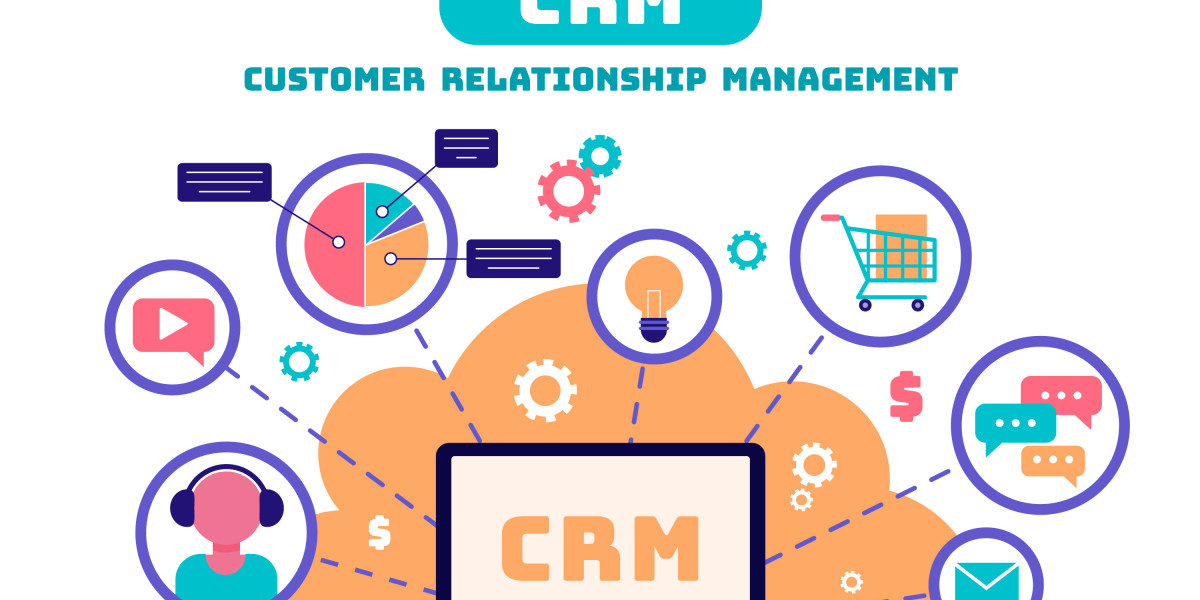In today's fast-paced business environment, managing customer relationships effectively is crucial for success. Customer Relationship Management (CRM) software plays a pivotal role in this endeavor, providing businesses with tools to streamline interactions, enhance customer satisfaction, and drive growth. This article delves into CRM software development, its significance, features, and the best practices for creating effective CRM solutions.
Understanding CRM Software Development
CRM software development refers to the process of designing and creating applications that help businesses manage their interactions with current and potential customers. This involves integrating various functions, such as sales, marketing, customer service, and data analysis, into a unified platform.
The Importance of CRM Software
Improved Customer Relationships: CRM systems centralize customer data, enabling businesses to personalize interactions and build stronger relationships. By understanding customer preferences and behaviors, organizations can tailor their offerings and communication strategies.
Enhanced Efficiency: Automating routine tasks such as data entry, follow-ups, and reporting reduces manual effort and minimizes errors. This allows teams to focus on higher-value activities that contribute to business growth.
Data-Driven Decisions: With advanced analytics and reporting features, CRM software provides insights into customer behavior, sales performance, and market trends. This data-driven approach empowers businesses to make informed decisions.
Streamlined Communication: CRM systems facilitate collaboration among teams by providing a centralized platform for sharing information. This ensures that everyone is on the same page and can respond quickly to customer inquiries.
Key Features of CRM Software
When developing a CRM system, several essential features should be considered to ensure it meets business needs:
1. Contact Management
A robust CRM should allow users to store and manage detailed information about customers, including contact details, communication history, and preferences. This feature is vital for personalized interactions.
2. Sales Automation
Automating sales processes, from lead generation to closing deals, helps streamline the sales pipeline. Features such as task assignment, reminders, and follow-up notifications enhance sales team productivity.
3. Marketing Automation
CRM systems often include tools for managing marketing campaigns, segmenting audiences, and tracking campaign performance. This allows businesses to target their marketing efforts effectively.
4. Customer Support
Integrating customer support functionalities, such as ticketing systems and knowledge bases, enhances the overall customer experience. Quick resolution of issues fosters customer loyalty.
5. Reporting and Analytics
Comprehensive reporting tools enable businesses to track key performance indicators (KPIs) and gain insights into sales trends, customer behavior, and overall CRM effectiveness.
Best Practices for CRM Software Development
To develop an effective CRM solution, consider the following best practices:
1. Define Clear Objectives
Before starting development, clearly outline the goals and objectives of the CRM system. Understanding what the business aims to achieve will guide the design and feature selection process.
2. Focus on User Experience
An intuitive user interface (UI) is critical for user adoption. Ensure that the CRM is easy to navigate, with a clean design that minimizes the learning curve for users.
3. Ensure Scalability
As businesses grow, their CRM needs may change. Design the system to be scalable, allowing for easy integration of additional features and functionalities as required.
4. Prioritize Data Security
Given the sensitivity of customer data, implementing robust security measures is essential. Ensure that the CRM adheres to data protection regulations and employs encryption and access controls.
5. Gather User Feedback
Involve end-users in the development process by gathering feedback during design and testing phases. This ensures that the final product meets user needs and expectations.
Choosing the Right Development Partner
Selecting the right development partner is crucial for successful CRM software development. Look for companies with expertise in CRM solutions, a strong portfolio, and positive client testimonials. A collaborative approach ensures that the final product aligns with your business goals.
Conclusion
CRM software development is an integral part of modern business strategy, offering tools that enhance customer relationships and streamline operations. By focusing on user experience, scalability, and security, businesses can create effective CRM solutions that drive growth and improve customer satisfaction. Investing in a tailored CRM system is not just a technological upgrade—it's a strategic move toward building lasting customer relationships.








